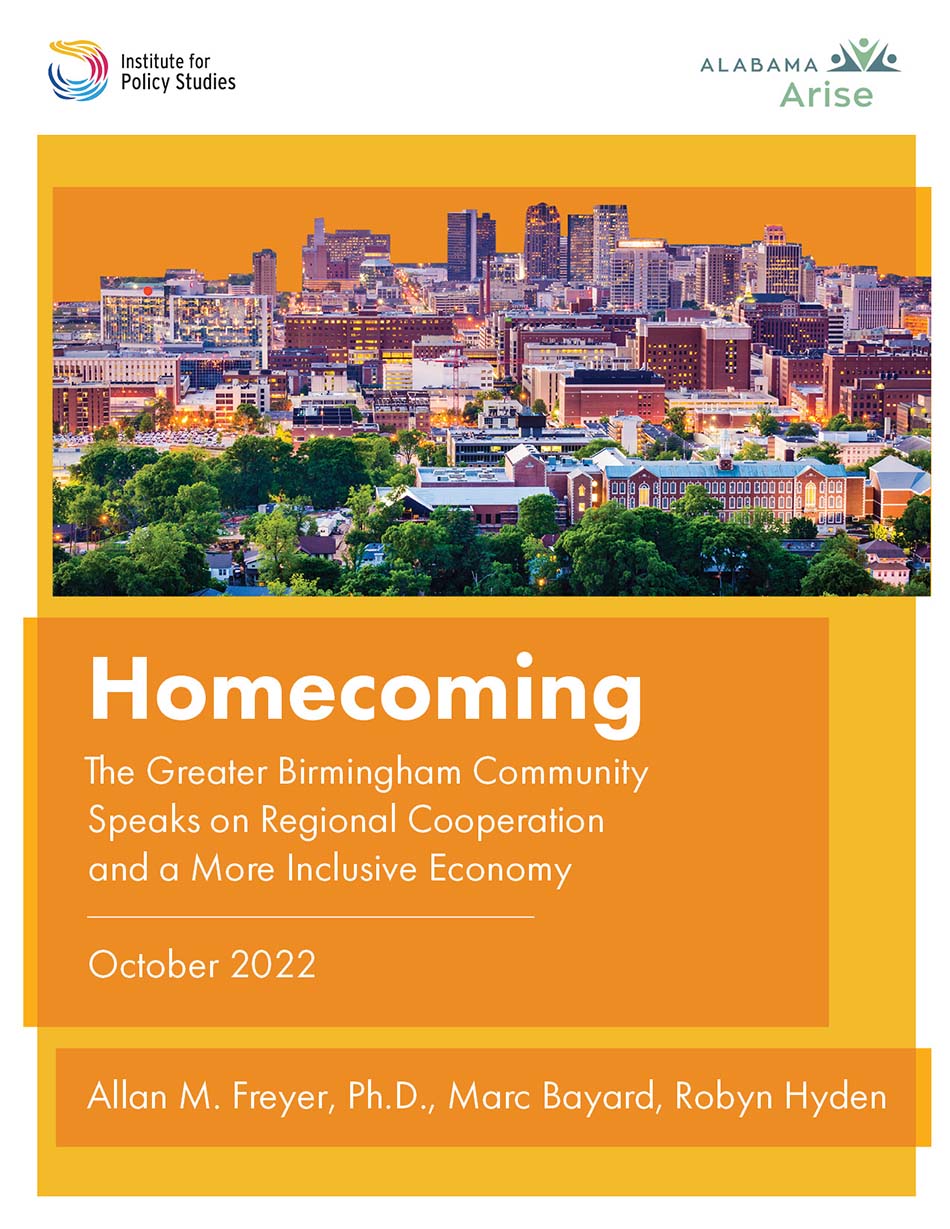Homecoming: The Greater Birmingham Community Speaks on Regional Cooperation and a More Inclusive Economy
Allan M. Freyer, Ph.D., Alabama Arise
Marc Bayard, Institute for Policy Studies
Robyn Hyden, Alabama Arise
Introduction:
After decades of economic stagnation, Greater Birmingham, Alabama, has experienced a recent resurgence in economic growth and civic engagement. Yet the benefits of this new prosperity are not widely shared. Economic opportunity and financial vulnerability vary considerably by race, gender, and geography.
Complicating matters, many municipalities in the region — from the majority-Black core city to the majority-white suburbs and outlying rural areas — have often worked against each other rather than with each other. We believe all of these communities would be better served if Greater Birmingham leaders embraced regional cooperation to ensure shared prosperity for all residents.
In this report, we identify and explore the barriers that stand in the way of this shared promise and outline a series of policy solutions for local governments.
These findings are drawn from a survey of over 1,000 local residents, a dozen focus groups with 80 local stakeholders, and two dozen one-on-one interviews with community leaders. We didn’t just find barriers — we also found broad public agreement on the challenges facing the region and some shared priorities for how to resolve them.
These values — shared across racial, geographic, and political divides — offer local organizers and community leaders a significant opportunity to help bring their communities together.
Our survey findings are detailed below. For an in-depth look at the challenges and opportunities in Greater Birmingham, download the full report.
Key Findings
- Three quarters of residents say the region’s economic resources are not distributed fairly. Only a quarter say they feel personally included in Greater Birmingham’s economic revival.
- Two-thirds of survey respondents identified transportation — especially the lack of public transit — as the top challenge facing Greater Birmingham, one of the country’s most auto-dependent metro areas.
- More than 55 percent of residents cited the lack of access to healthy food in many neighborhoods as a significant problem facing Greater Birmingham residents.
- Almost 80 percent of respondents identified rising housing costs as a problem. Another 73 percent said the same about the lack of affordable housing.
- More than 73 percent of survey respondents rated a lack of good jobs as at least somewhat of a problem, including 82 percent of Black respondents and 62 percent of white respondents.
- Nearly 60 percent of survey respondents said that gaining access to job training programs is a challenge, and those fortunate enough to complete these programs might not find available jobs calling for their new skills.
- More than 60 percent saw child care as a significant challenge for the Greater Birmingham economy.
- More than three-quarters of residents want their local government to make sure companies create the jobs they promise in exchange for public subsidies or tax incentives — and require those jobs to pay living wages.
- A supermajority of residents — nearly three-quarters — oppose state preemption laws that limit the authority of local governments. In particular, large majorities of Black and white residents alike want local governments to be able to set their own minimum wage.

